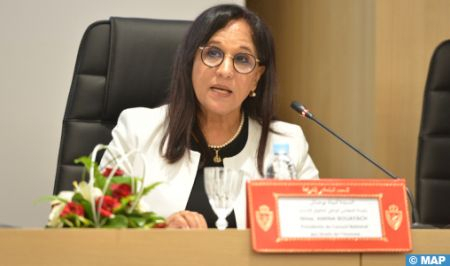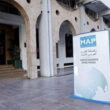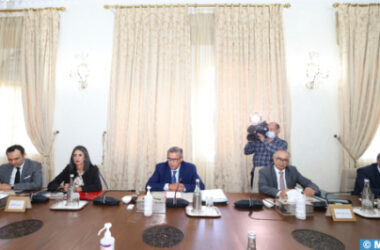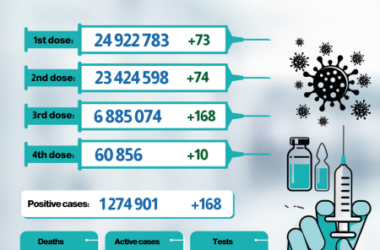“The prevention of torture and other cruel treatments is neither an intellectual luxury nor a show of favoritism. It is at the heart of the daily life of all society’s members and institutions 24 hours a day, 7 days a week”, underlined Bouayach in a speech at the opening of an international seminar on “standards and practices for the prevention of torture and other cruel, inhuman or degrading treatment or punishment during arrest, hearing and custody”.
Organized by the CNDH and the General Directorate for National Security (DGSN), this seminar is part of the immediate implementation of the framework partnership and institutional cooperation agreement on training and strengthening compliance to human rights in the exercise of the policing function signed between the two institutions on September 14.
Each deviation challenges us on the shared sense of responsibility to prevent torture, argued the president of the CNDH, noting that “this is where the strategic importance of institutional cooperation lies.”
In this regard, the official underlined that the partnership between the DGSN and the CNDH “which may seem innocuous when examined from a purely institutional point of view, bears in fact symbolic meanings and is of unprecedented significance for human rights.”
The President of the CNDH also recalled that the creation of the National Mechanism for the Prevention of Torture three years ago constituted a “turning point” in the construction of the rule of law in Morocco, and represents a “fundamental pillar” in efforts to strengthen guarantees of respect for human rights and the implementation of the human rights roadmap set out in the 2011 Constitution.
In this sense, the goal will be to increase the number of visits carried out by this national mechanism to reach 100 visits in 2024, she said, describing as “very positive” and “encouraging” the results of the said mechanism, which recorded an interaction rate with its recommendations ranging from 80 to 90%, whether with prison establishments, the DGSN or the Royal Gendarmerie.
This mechanism is also preparing successive visits to several courts, airports and psychiatric hospitals to assess the level of application of its recommendations, said Bouayach.
For his part, the resident professor of international human rights law at the American University – Washington College of Law (WCL), Juan E. Mendez, praised “Morocco’s efforts aimed at strengthening the guarantees that protect individuals from abuses in the use of authority, particularly during a criminal investigation”.
Mendez, who is a former UN special rapporteur on torture and other cruel, inhuman or degrading treatment or punishment, cited the amendments made in recent years in the Kingdom to criminal procedure, particularly after he visited Morocco in 2013.
To this end, he hailed the “constant efforts” of the CNDH and “its tireless advocacy” to prevent torture in Morocco.
This study day brings together national and international experts, representatives of the DGSN, the Royal Gendarmerie, the Superior Council of the Judiciary, the Presidency of the Public Prosecutor’s Office, the Ministry of Justice, civil society organizations, universities, national human rights institutions and other relevant stakeholders.
The Seminar features two sessions on “Legal and judicial guarantees for the prevention of torture” and “Mechanisms and measures for the prevention of torture and other cruel, inhuman or degrading treatment or punishment.” These sessions are chaired by the former Minister of Justice and former Ambassador Permanent Representative of Morocco to the United Nations, Mohamed Aujjar, and the Secretary General of the Association for the Prevention of Torture (APT), Barbara Bernath, respectively.










